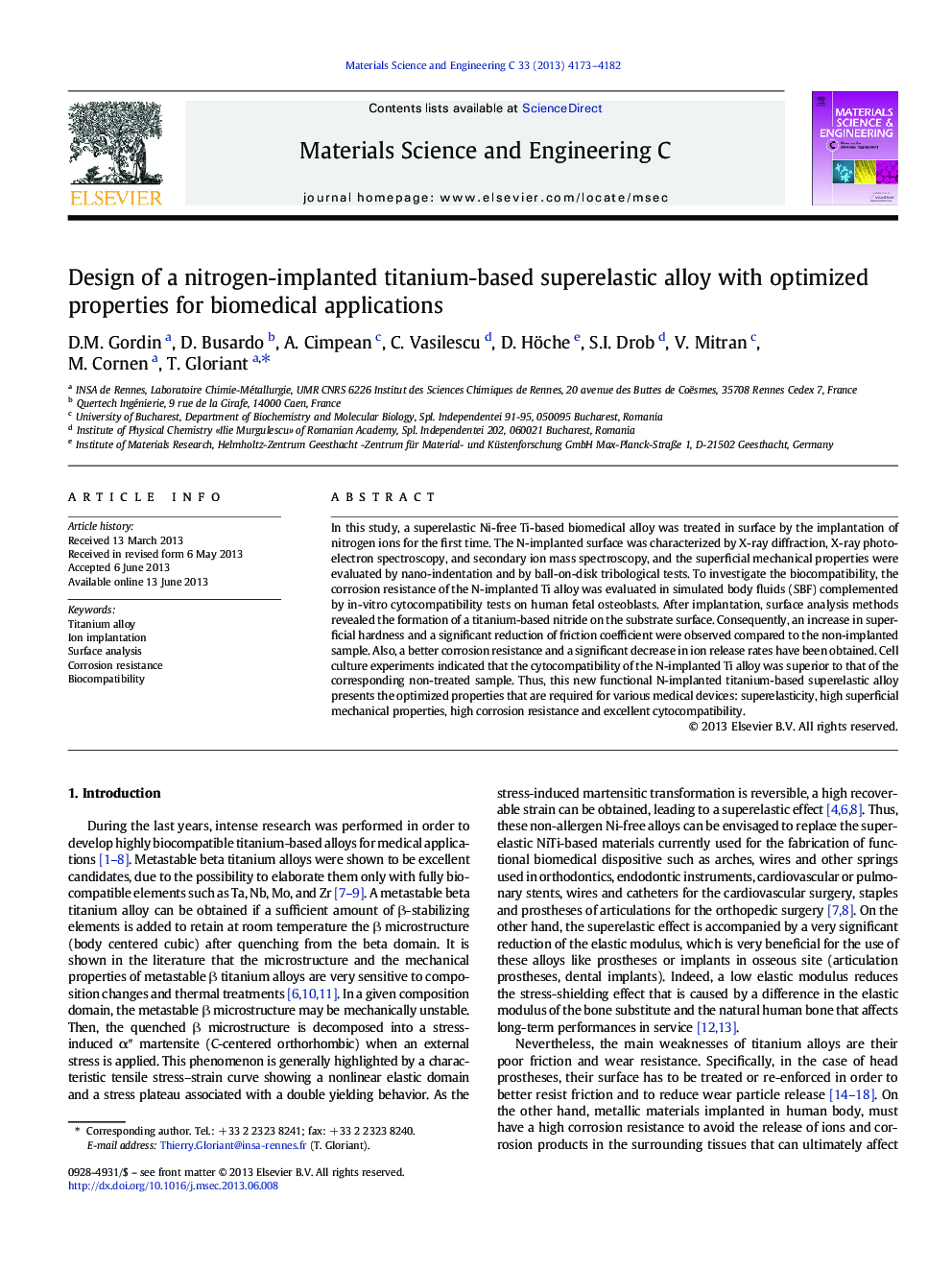| Article ID | Journal | Published Year | Pages | File Type |
|---|---|---|---|---|
| 10614603 | Materials Science and Engineering: C | 2013 | 10 Pages |
Abstract
In this study, a superelastic Ni-free Ti-based biomedical alloy was treated in surface by the implantation of nitrogen ions for the first time. The N-implanted surface was characterized by X-ray diffraction, X-ray photoelectron spectroscopy, and secondary ion mass spectroscopy, and the superficial mechanical properties were evaluated by nano-indentation and by ball-on-disk tribological tests. To investigate the biocompatibility, the corrosion resistance of the N-implanted Ti alloy was evaluated in simulated body fluids (SBF) complemented by in-vitro cytocompatibility tests on human fetal osteoblasts. After implantation, surface analysis methods revealed the formation of a titanium-based nitride on the substrate surface. Consequently, an increase in superficial hardness and a significant reduction of friction coefficient were observed compared to the non-implanted sample. Also, a better corrosion resistance and a significant decrease in ion release rates have been obtained. Cell culture experiments indicated that the cytocompatibility of the N-implanted Ti alloy was superior to that of the corresponding non-treated sample. Thus, this new functional N-implanted titanium-based superelastic alloy presents the optimized properties that are required for various medical devices: superelasticity, high superficial mechanical properties, high corrosion resistance and excellent cytocompatibility.
Related Topics
Physical Sciences and Engineering
Materials Science
Biomaterials
Authors
D.M. Gordin, D. Busardo, A. Cimpean, C. Vasilescu, D. Höche, S.I. Drob, V. Mitran, M. Cornen, T. Gloriant,
